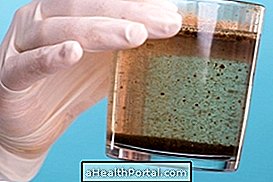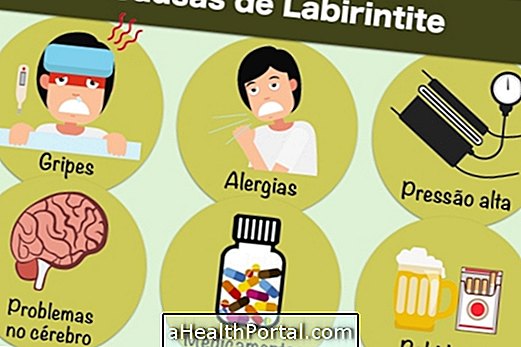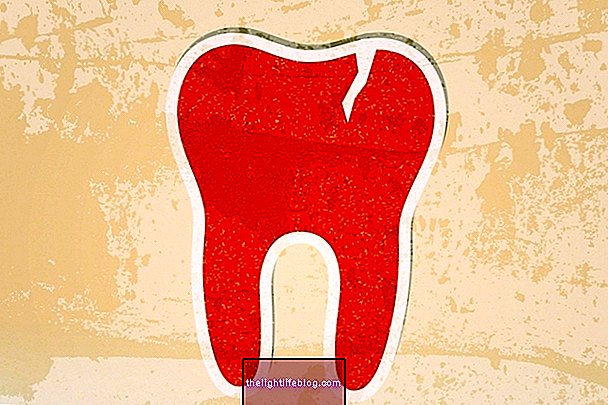Contamination with Mercury can lead to the accumulation of this metal in the body, affecting mainly the kidneys, liver, digestive apparatus and also the central nervous system can be a very serious situation that needs medical follow-up throughout life.
Mercury poisoning is silent and can take months or years to manifest itself through such signs as:
- Weakness, frequent tiredness;
- Loss of appetite and consequent weight loss;
- Ulcer in the stomach or duodenum; kidney damage;
- Direct contact may cause skin irritation and swelling of the skin.
When there is neurotoxicity due to accumulation of mercury in the central nervous system there may be:
- Nervousness, anxiety, irritability; mood swings;
- Apathy or aggression, mental confusion;
- Insomnia, frequent nightmares;
- Forgetfulness and memory lapses;
- Headache, migraine, pain in the muscles;
- Dizziness, labyrinthitis; delirium, hallucinations, tendency to suicide;
- Teeth weak and brittle, or soft, with a tendency to fall.
All of these changes can occur when there is exposure to high concentrations of mercury, greater than 20 micrograms per cubic meter, which can be achieved over time during work or through feeding.
Contamination especially by methylmercury is especially severe during pregnancy because this metal can affect the development of the baby's brain and the changes that the contamination that the mercury causes are permanent, and do not disappear even after cessation of exposure to this metal.
How Mercury Contamination Can Happen
Contamination can occur in three different ways:



1. In people who work with mercury: in the mining, gold mining and chlorine-soda factories and fluorescent lamps. This contamination usually occurs through the inhalation of mercury, which also affects the lungs and can cause respiratory diseases such as asthma, for example.
2. Through the environment, consuming contaminated water or fish: This contamination is more frequent in riverside populations, as in the Amazon, a garimpo and a large mercury site, but it can also affect anyone who consumes water or food contaminated with this metal in case of environmental accidents.
3. Through dental treatments, although this is not very common and rarely leads to serious health problems.
This type of contamination directly affects the blood and can cause damage to the digestive system and permanent neurological damage.
Fish that contains mercury should be avoided
Some freshwater and saltwater fish are natural sources of mercury, but these have small amounts that are generally not harmful to health. Fish that have a lower risk of contamination by this metal are:
- Tambaqui, jatuarana, pirapitinga and pacu : because they feed on seeds and fruits;
- Bodo, Jaraqui, Curimatã and Branquinha : because they feed on microorganisms and mud from the bottom of the rivers;
- Aruanã, pirarara, ai, mandi, matrinchã and cuiucuiu : because they feed on insects and plankton.
Already, the fish that may have a greater risk of contamination are:
- Golden, cub, piranha, tucunare, surubim, hake and painted : because they feed on other smaller fish.
However, in case of environmental accidents, when there is mercury contamination in a particular region all fish from the affected areas should not be consumed because they may contain high doses of mercury in their meat, which may lead to intoxication in humans.
What to do if you suspect you are contaminated
If you suspect contamination, you should arrange for a medical consultation and inform him of your suspicion. The doctor may order tests that can identify if the mercury poisoning, called mercurialism, is confirmed.
How to know if you are contaminated by mercury
Confirmation of the contamination can be done by examining blood that measures the amount of Mércurio in the blood or by measuring the amount in the hair. According to the World Health Organization the maximum concentration of mercury in hair should be less than 7 (μg / g).
Other tests may also be needed to measure the health consequences of mercury, such as MRI, electroencephalogram, hormonal exams, and specific tests for each organ depending on the affected tissues.
Treatment for mercury contamination
The treatment can be done through the use of chelating drugs that facilitate the elimination of mercury, which should be indicated by the doctor. You may also need:
- Taking medicines to combat anxiety and depression;
- Take supplements of vitamin C, E and selenium;
The follow-up of a psychologist or psychiatrist can be an important aid to complement the treatment, improving the quality of life of the individual. See how you can avoid mercury contamination.



























